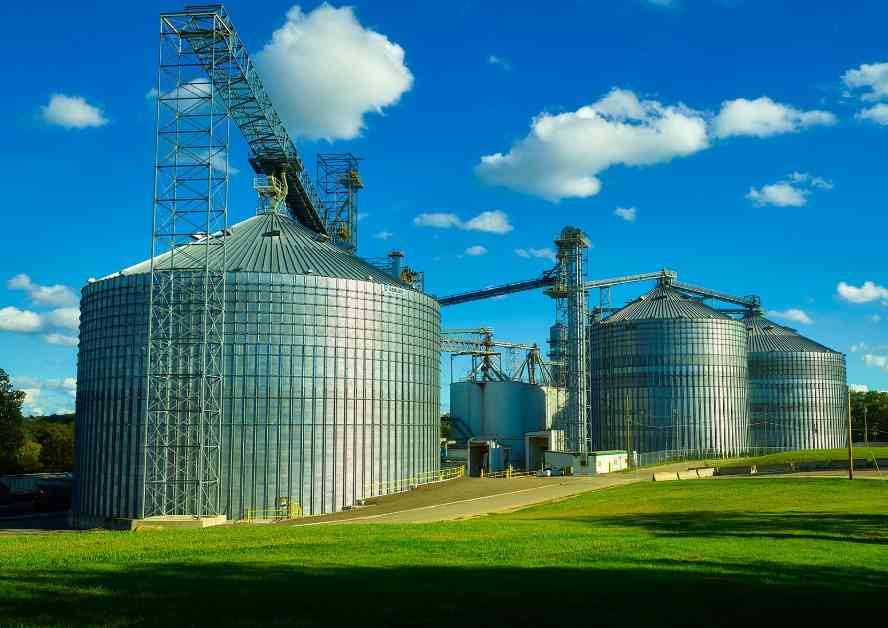Firefighters in Culcheth responded to a smoking grain silo incident on Church Lane, which required the prompt action of crews from Lymm and Warrington. The emergency call came in at approximately 6:16 pm on Tuesday, signaling a potentially dangerous situation that needed immediate attention.
Upon arrival at the scene, the firefighters were faced with a grain silo emitting smoke, indicating that a fire had started within the structure. With the safety of the surrounding area and residents in mind, the fire crews wasted no time in addressing the situation. Cheshire Fire confirmed the presence of smoke within the silo and quickly formulated a plan to cool it down using two covering jets.
The operation to extinguish the fire in the grain silo required a coordinated effort from the firefighters on site. In addition to cooling measures, the silo had to be shut down to prevent further escalation of the situation. This crucial step ensured that the fire could be contained and eventually extinguished without causing extensive damage or posing a threat to nearby properties.
The removal of the grain from the silo was another key aspect of the firefighting operation. By emptying the silo of its contents, the firefighters were able to eliminate the fuel source for the fire, effectively cutting off its ability to spread. This strategic decision played a significant role in bringing the incident under control and preventing any further complications.
Response and Coordination
The swift response of the fire crews in Culcheth highlighted the importance of efficient emergency services in ensuring the safety of the community. The coordination between the teams from Lymm and Warrington demonstrated their ability to work together seamlessly in high-pressure situations. This level of professionalism and expertise is essential in managing incidents like the smoking grain silo effectively and minimizing the potential risks involved.
In situations involving industrial structures like grain silos, the response time of emergency services is critical. The potential for fires to escalate rapidly within these enclosed spaces underscores the need for proactive measures and rapid intervention. The timely arrival of the fire crews in Culcheth played a crucial role in preventing the situation from worsening and containing the fire before it could cause significant damage.
Safety Precautions and Risk Management
The smoking grain silo incident in Culcheth serves as a reminder of the importance of safety precautions and risk management in industrial settings. Grain silos are commonly used for storing large quantities of grain, making them susceptible to fire hazards if proper safety measures are not in place. Regular maintenance, inspection, and monitoring of these structures are essential to prevent incidents like the one in Culcheth.
Fire safety protocols and emergency response plans are vital components of risk management for industrial facilities like grain silos. Ensuring that employees are trained in fire safety procedures and that adequate firefighting equipment is readily available can make a significant difference in the event of an emergency. By prioritizing safety and preparedness, companies can minimize the potential impact of incidents like fires in grain silos and protect both their assets and personnel.
Community Impact and Recovery
The smoking grain silo incident in Culcheth had a direct impact on the local community, as emergency services worked tirelessly to address the situation and ensure the safety of residents. The swift response of the fire crews and the successful containment of the fire were crucial in mitigating the potential risks to nearby properties and individuals. The coordinated efforts of the emergency services helped to prevent the incident from escalating and causing widespread damage.
As the community begins the process of recovery and cleanup following the smoking grain silo incident, there are valuable lessons to be learned. Assessing the root causes of the fire and implementing corrective measures can help prevent similar incidents in the future. By prioritizing safety, communication, and preparedness, communities can better protect themselves against the unexpected challenges posed by industrial incidents like the one in Culcheth.
In conclusion, the smoking grain silo incident in Culcheth served as a testament to the importance of swift emergency response, effective risk management, and community resilience. By working together and prioritizing safety, emergency services and local residents were able to navigate a potentially dangerous situation and emerge stronger on the other side. As the community reflects on the incident and looks towards the future, the lessons learned from this experience will undoubtedly shape their approach to safety and preparedness moving forward.




















